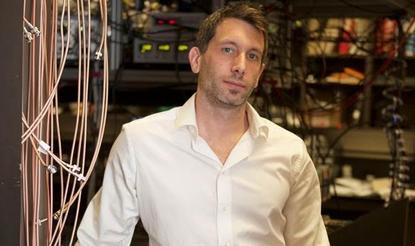Sydney University gets quantum boost from US intelligence
- 04 May, 2016 10:43

Michael Biercuk from Sydney University's Quantum Control Laboratory: Trapped ions are decades ahead of other proposed quantum technologies.
The University of Sydney has received a multi-million dollar grant from the United States Office of the Director of National Intelligence to assist in its research into quantum computing technology.
Associate professor Michael Biercuk’s Quantum Control Laboratory at Sydney University was the only team based in Australia selected for funding from an international consortium of groups.
The lab – which runs out of the university’s recently launched $150 million Nanoscience Hub – has been selected by the US government agency, Intelligence Advanced Research Projects Activity, as part of its LogiQ program, to deliver a logical qubit (quantum bit) based on trapped ions.
The LogiQ program is hoping to stablise quantum hardware to overcome issues that have slowed down the progress of creating these systems – mainly the fragility of systems obeying the strange rules of quantum physics.
“Ions represent a fantastic platform helping us to learn how we can exploit the most exotic phenomena in quantum physics, as resources powering a new generation of technologies,” Biercuk said.
“There remain enormous challenges bringing any quantum technology to reality, but trapped-ions have demonstrated the critical building blocks essential for this effort, decades ahead of other proposed technologies.”
Sydney University’s Quantum Control Laboratory was chosen for its expertise in combing quantum physics with control engineering to make quantum hardware more resilient to error.
Techniques that this group pioneered earned Professor Biercuk a Eureka Prize for Outstanding Early Career Researcher in 2015. His collaborative work on quantum simulation with trapped ions was also named the eighth ‘world changing experiment’ by BBC Focus.
“US agencies interested in how quantum technology can be applied to problems in intelligence and security provide the majority of the group’s research support,” Biercuk said.
“They seek our expertise – and that of my colleagues in the Quantum Science Group – in learning how quantum systems can be coaxed into performing useful tasks and put to work in technological applications.”
Follow CIO Australia on Twitter and Like us on Facebook… Twitter: @CIO_Australia, Facebook: CIO Australia, or take part in the CIO conversation on LinkedIn: CIO Australia
Follow Byron Connolly on Twitter: @ByronConnolly

